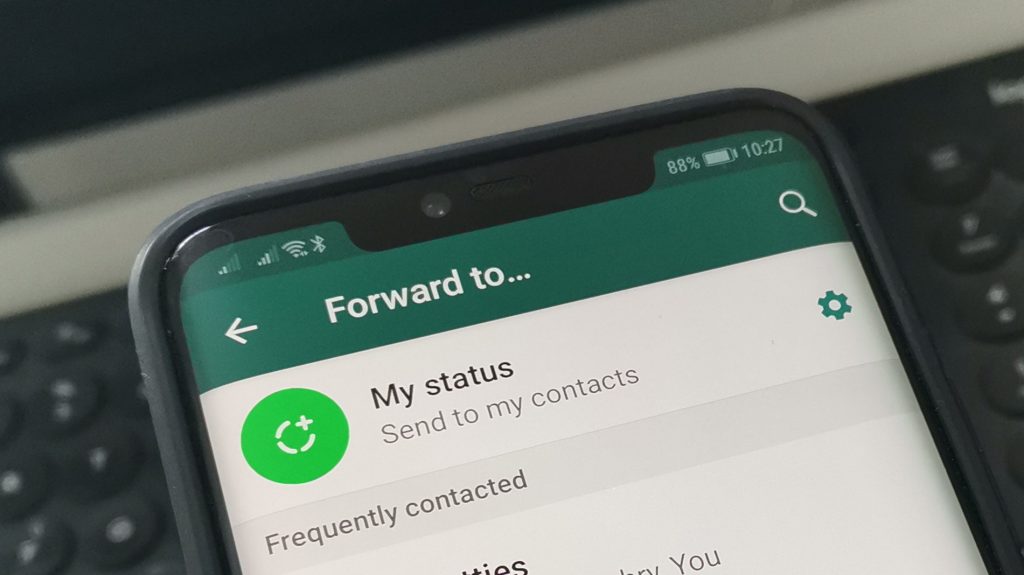advertisement
WhatsApp Limits Forwarded Messages During The COVID-19 Pandemic
In a bid to contain the misinformation and misconception peddled globally by WhatsApp users regarding the coronavirus, it had announced…

In a bid to contain the misinformation and misconception peddled globally by WhatsApp users regarding the coronavirus, it had announced the reduction in the number of chats and forwarded messages as can be sent and received by users.
Branding some as “highly forwarded”, such messages will now be limited for forwarding to limit the spread of harmful misinformation around the Coronavirus. Such will also come with a double arrow icon, and will only be possible to forward to one WhatsApp chat at a time as opposed to five as previously.
With billions of people in isolation from each other due to COVID-19, more than ever, people all over the world are relying on WhatsApp to communicate with their extended families, doctors, teachers and friends during this crisis. Whatsapp has been a crucial – and positive – way for people to stay connected at this difficult time.
advertisement
However, there has been a significant increase in the number of messages that are being forwarded on WhatsApp, which can contribute to the spread of misinformation. After carefully assessing the situation over recent weeks, additional steps are being taken to slow the spread of these messages, and to keep WhatsApp a place for personal interactions.
WhatsApp began last year to label messages that had been forwarded more than five times with a double arrow icon in the top left-hand corner of the message, so that people could see when a message did not originate from a close personal contact. These messages are now referred to as “highly-forwarded messages.”
Earlier in 2018 WhatsApp began labelling messages that had been forwarded with a single arrow icon and later in the year made the first change to its “forward limits”, by dropping the forward limit for all messages from 20 to just five. This one change for the forward limit alone resulted in a 25% decrease in messages that were being forwarded on the service – which roughly translated as 1 billion fewer messages being forwarded every day.
advertisement
WhatsApp has previously removed the “quick forward” button for all highly-forwarded media-file messages in order to add greater friction to the forwarding process, and thus to contain the spread of these messages. The “quick forward button” can usually be seen to the right of media file messages, i.e. photos and videos ,except, now, when they become highly-forwarded messages.
Last October, WhatsApp also introduced new controls for users over who can add them to a group with the change designed to give users greater control over their WhatsApp experience while also helping to contain the spread of misinformation. This control can be accessed within the app through Settings / Account / Privacy / Groups.
Facebook has meanwhile stepped up efforts to help people access information about COVID-19 on its platforms from official, reliable sources and has for several weeks worked directly with NGOs and governments, including the World Health Organization and dozens of national health ministries, to help connect people with accurate information. Together with trusted authorities across the world, FB will send hundreds of millions of messages directly to people requesting information and advice. You can learn more about these efforts, as well as how to submit potential myths, hoaxes and rumors to fact checking organisations, on the coronavirus Hub.
advertisement
Recently, FB partnered with the Ministry of Health in Kenya to launch a WhatsApp Business API, a dedicated Coronavirus hotline – 0110-719719 that will enable Kenyans to get answers to the most common questions about Coronaviru
Facebook insanity still rules. Mark Zuckerberg is still sucking up and thinks he is a world leader, while he is a puppet, just, a little puppet in a big game he does not understand.
I have never used WhatsApp, it’s now being weaponized like FB itself.
God save us from the social media owners.